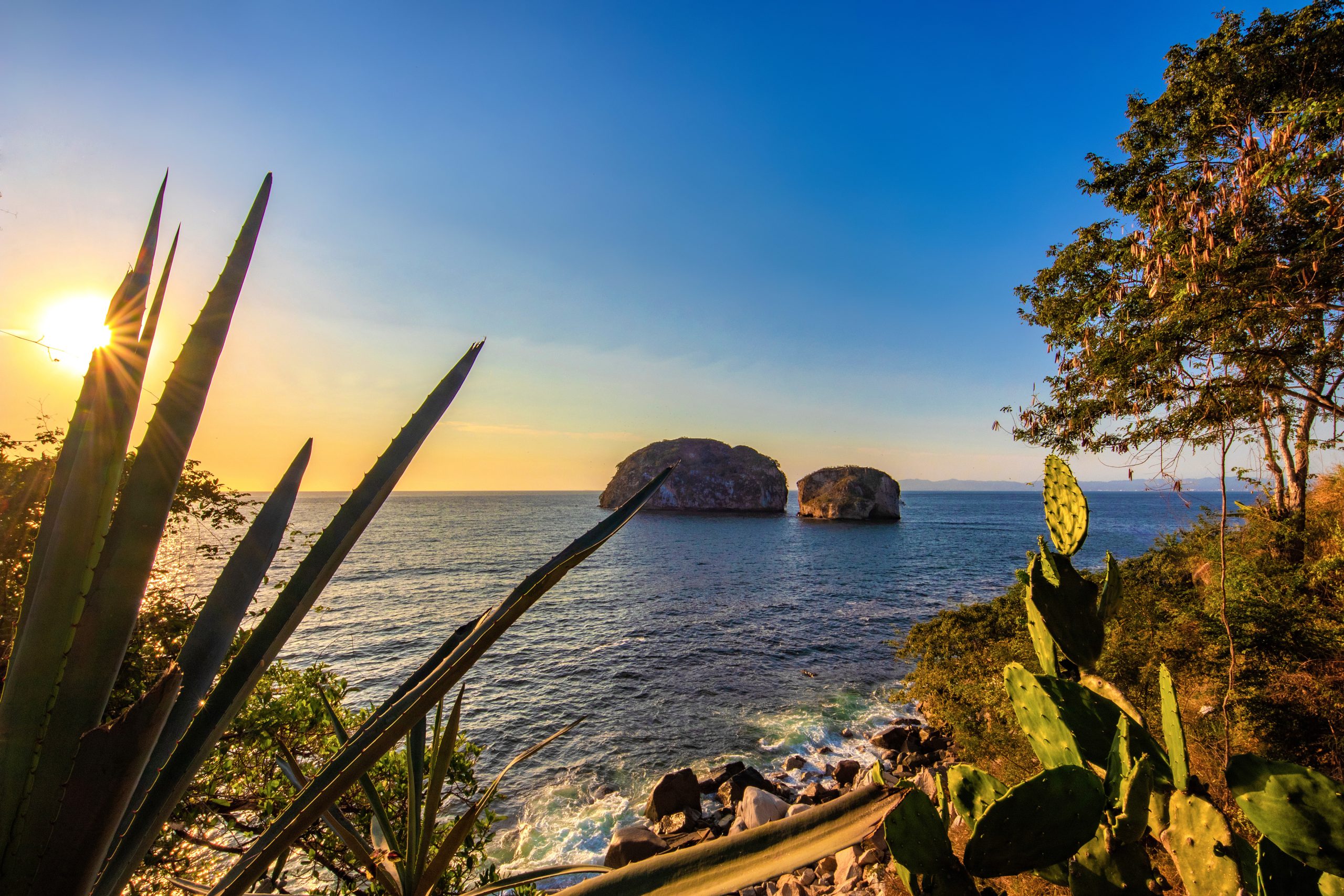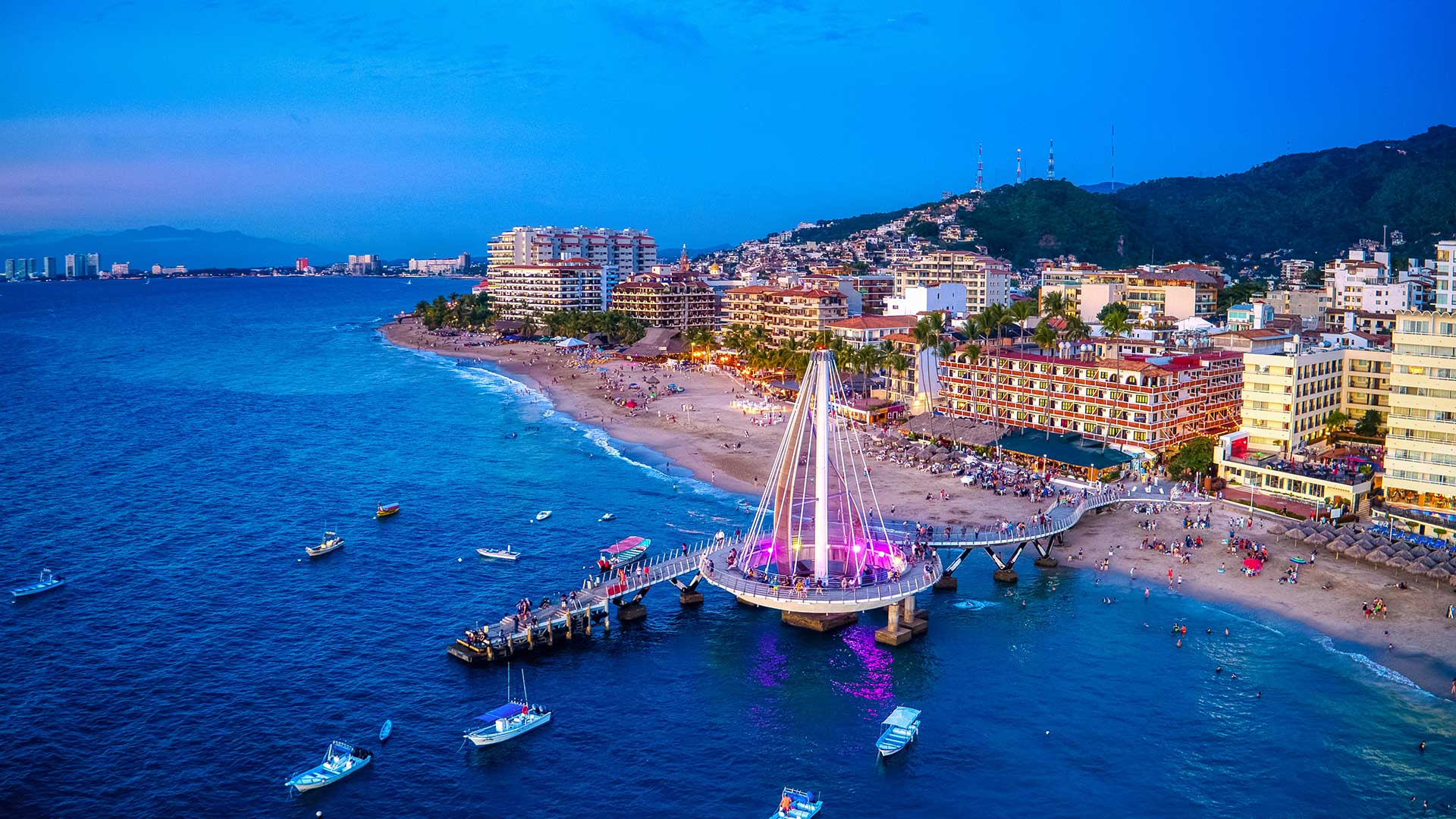DevSupport
HOW IT WORKS
It is a common misconception that foreigners cannot own Real Estate in Mexico , but the reality is that they can. Outside of the Restricted Zone, which is defined below, a foreigner or foreign corporation can acquire any type of Real Estate, holding the property as a direct owner, equal to Mexican citizens by simply complying with Mexican law.
However, there is the Restricted Zone. The Mexican Constitution regulates ownership of the land and establishes that “. in a zone of 100 kilometers (about 62 miles) along the border or 50 kilometers (about 31 miles) along the coast, a foreigner cannot acquire the direct ownership of the land”. These areas are known as the “Restricted or Prohibited Zones”. (You will find, by scrolling down… a map diagram that illustrates the defined areas of “The Restricted Zone” in a detailed comprehensive visual presentation.)
Nevertheless, the latest Mexican Foreign Investment Law, enacted December 28, 1993, provides a solution in the form of a Fideicomiso (pronounced Fee-deh-com-ee-so). Within the Restricted Zone, a foreigner or foreign corporation can obtain all the rights of ownership with a bank trust, known as a Fideicomiso. Any foreigner or Mexican National can establish a Fideicomiso (the equivalent of an American beneficial trust) through a Mexican bank to purchase real estate anywhere in Mexico , including the Restricted Zone. For practical reasons, even in unrestricted zones, many foreigners, and Mexican Nationals for that matter, prefer to hold their property under a Fideicomiso
To do so, the buyer requests a Mexican bank of his choice to act as a trustee on his behalf. The bank, as a matter of normal course, obtains the permit from the Ministry of Foreign Affairs to acquire the chosen property in trust. The Fideicomiso can be established for a maximum term of 50 years and can be automatically renewed for another 50-year period. During these periods you have the right to transfer the title to any other party, including a member of your family. The bank becomes the legal owner of the property for the exclusive use of the buyer/beneficiary, who has all the benefits of a direct owner, including the possibility of leasing or transferring his rights to the property to a third party or pre-appointed heir.
The trustee is responsible to the buyer/beneficiary to ensure precise fulfillment of the trust, according to Mexican law, assuming full technical, legal and administrative supervision in order to protect the interests of the buyer/beneficiary. Fideicomisos are not held by the trustee as an asset of the bank.
Another alternative is to purchase non-residential property through a Mexican corporation, which under certain conditions can be 100% foreign-owned, with a provision in its by-laws that the foreigners accept being subject to Mexican laws and agree not to invoke the laws of their own country. Also, they agree that the real estate acquired be registered with the Foreign Affairs Ministry and be used for non-residential activities. In other words, under these conditions foreigners can directly acquire properties destined for tourist, commercial and industrial use.
There is a common misconception among foreigners investing in Mexico that once the trust expires, the beneficiary loses all rights and benefits of the sale of the property held in trust. This is not the case. On the contrary…
the beneficiary has a contractual right under the trust agreement with the Mexican bank to all benefits that may result from the use or sale of that property, even though he does not hold title to the property. Under Mexican Law. The bank, as trustee, has a fiduciary obligation to respect the rights of the beneficiary.
A real estate trust is not a lease.
The beneficiary can instruct the bank to sell or lease the property at any time. The beneficiary can develop and use the property to his liking and benefit, within the provisions of the law. Generally, the law allows most activities engaged in by foreigners.
Structure of the Trust
The Trustor , a Mexican citizen or a Mexican corporation with no foreign participation; the original owner of the Real State , it’s the party who places the property in trust.
The Trustee , as indicated previously, the trustee is the Banking Institution that holds the trust over the land for the benefit of the beneficiary.
The Beneficiary , the first beneficiary is normally the promoter, who acquires beneficial rights in order to develop the property and sell its beneficial interest to other parties in turn. The final beneficiary is a foreigner, since Mexicans will usually acquire (buy) direct ownership.
The Process
Most real estate transactions are “opened” after a written purchase offer is accepted by the seller and when a purchase-sale agreement (promissory contract) is signed by both parties. In most cases, a deposit is required by the broker to transmit the offer to the seller. (If the transaction is being conducted directly with the seller, it is highly recommended that a real estate broker or lawyer be consulted before signing any papers or handing over any money.)
In some areas it is common practice to deliver to the seller, as an advance payment, the equivalent of 10-30% (including the initial deposit) of the total price upon signing the purchase-sale agreement, which should contain a penalty clause applicable in case there is a breach of contract by any of the parties. In Puerto Vallarta a 10% deposit is required upon the signing of the contract by all parties.
Normally, when signing the escritura or official deed, which needs to be certified by a Public Notary, the balance is paid and the property is delivered. This should not take more than 45 days. It is recommended that an escrow account be used for all real estate transactions.
Real estate prices are generally established in U.S. dollars due to the devolutionary times in the past. Most all payments are made by wiring funds from a U.S. bank to a Mexican correspondent bank or an established escrow account with one of two title companies in the United States.
The Public Notary
A Public Notary is a government-appointed lawyer who processes and certifies all real estate transactions, including the drawing and review of all real estate closing documents, thus ensuring their proper transfer.
Furthermore, all powers of attorney, the formation of corporations, wills, official witnessing, etc. are handled and duly registered through the office of the Public Notary, who also is responsible to the government for the collection of all taxes involved.
In connection with real estate transactions, the Public Notary, upon request, receives the following official documents, which, by law, are required for any transfer:
A non-lien certificate from the public property registry, based on a complete title search; A statement from the treasury or municipality regarding property assessments, water bills and other pertinent taxes that might be due; An appraisal of the property for tax purposes. All real estate transactions must involve a notario, who has virtually no relation to the American notary public. Closing Costs.
It is common practice that the buyer pays the transfer of acquisition tax and all other closing costs, including the Notary’s fees and expenses, while the seller pays his capital gains tax and the broker’s commission.
Since January 1, 1996, the federal law regarding the real estate transfer tax, which was 2% for all the Republic of Mexico , was modified to allow each of the Mexican states to determine its own tax. The range now may be from 1-4% of the tax appraisal value, which is generally less than the sales value.
The rest of the closing costs, which exclude the transfer cost mentioned above, vary from 3-5% or more of the appraised tax value, depending on the particular state. These percentages are applied to the highest value of the following:
The amount for which the property is sold, The value of the official tax appraisal, The value designated by the property assessment authorities.
Cost of the Fideicomiso
Based on the present tariff, the bank charges the person desiring the Fideicomiso an initial fee (approx. $1,500.00 USD) for drawing up the agreement and establishing the trust, plus a percentage based on the value of the property. In addition, the bank charges an annual fee (depending on the value of the property) to cover its services as a trustee. This fee is approximately $500.00 USD per year.
Real Estate Broker’s Commission
Most real estate companies in Mexico charge a 6-8% commission based on the actual sale price of the property. However, in resort areas broker rates are usually higher because of increased broker expenses. In Puerto Vallarta the commission is 8%.
Capital Gains Tax
In Mexico, the concept of capital gains tax does not apply in the same way it is determined in the United States . Here, the gain from the sale of property is treated as normal income at a tax rate of up to 35%. To determine the gain, the following costs and expenses are deducted from the amount for which the property is officially sold:
-The original land cost and the depreciated construction cost, based on the number of years the property was held and adjusted for i nflation according to the official consumer price indexes; – Additions, modifications and improvements, but not maintenance, made on the property (construction), adjusted as above; – Commissions paid to real estate brokers by the seller; – The closing costs, including all expenses, taxes and fees paid by the seller.
The Notary will retain the calculated gain after deductions, forwarding it to the Mexican tax authorities. The seller will then deduct this amount against his annual tax return, which becomes an adjustable tax credit in the U.S.A. On the other hand, there is no capital gains tax in Mexico if there is conclusive proof the seller has used the property as his primary residence.
EXPLANATION OF CLOSING
The closing procedure generally takes from 30 to 45 days and these costs are paid by the buyer. Note: All amounts are in US Dollars, with an exchange rate of over $18.50 pesos per dollar. When a property is acquired through a Purchase-Offer or when a Trust Transfer Domain is carried out before a Notary Public, in order for them to be legally constituted they must meet with a series of permits and expenses, which are described as follows:
The closing procedure generally takes from 30 to 45 days and these costs are paid by the buyer. Note: All amounts are in US Dollars, with an exchange rate of $10.50 pesos per dollar. When a property is acquired through a Purchase-Offer or when a Trust Transfer Domain is carried out before a Notary Public, in order for them to be legally constituted they must meet with a series of permits and expenses, which are described as follows:
The closing procedure generally takes from 30 to 45 days and these costs are paid by the buyer. Note: All amounts are in US Dollars, with an exchange rate of $10.50 pesos per dollar. When a property is acquired through a Purchase-Offer or when a Trust Transfer Domain is carried out before a Notary Public, in order for them to be legally constituted they must meet with a series of permits and expenses, which are described as follows:
1. TRUSTEE FEES:
These are charged on a yearly basis and are paid upfront. They may vary according to the transaction and considering the property and the trustee; nonetheless most of them charge $450. in properties priced under $700,000.00. For properties priced up to $l,500,000 they charge $600. and over $1,500,001.00 they charge $1,000. In Addition to this all the Trustees collect the same fee for the Trust Acceptance, which is charged only once.
2. FOREIGN AFFAIRS PERMIT (SRE):
This is a permit that the Notary Public or the Trustee process through their agents and they may cost $1,100. as a maximum fee; this may be in proportion to the agents fees, since the permit fee from the Foreign Relations Office does not vary.
3. NATIONAL FOREIGN INVESTMENTS REGISTRATION (RNIE):
The Trustee has the obligation to process the registration of the Deed within a 30 day period after the granting and the cost per fees and rights may vary from $285 to $330 according to the Trustee.
4. NOTARY PUBLIC FEES:
These are regulated by a fee list authorized by the Notary Law valid in every State. In the State of Jalisco the fee list is as follows:
From $1,000 up to $9,523 = 2% From$9,524 up to $1,9047 = 1.15% From $19,048 up to $47,619 = .85% From $47,619 up to$71,428=.65% from $71,429 up to $95,238 = .50% From $95,239 up to $476,190 =.25% from $476,191 and over =.20%. (Note: The fees can be for a lesser amount but never for an amount over this fee list.)
5. PROPERTY ACQUISITION TAX:
This is a State Tax. The notary Public is responsible to charge and declare it without surcharges. In the case of the State of Nayarit this takes place within a 30 day period after the granting of the Deed. It is 2% based on the highest value of the previously authorized construction appraisal. In the case of the State of Jalisco it takes 60 days. This tax is charged based on the construction appraisal value using different percentages and fixed amounts. It is important to mention that in order to calculate this tax you must apply a special procedure and the real closing costs cannot be determined on your own, a notary must determine these costs.
6. APPRAISAL AND DIVISION:
Your cost is calculated as follows: on values up to: $250,000 = 3% $250,001 – $500,000 = 2% $500,001 – and up = 1% (Note: These percentages may vary according to the appraiser’s criteria.).
7. PUBLIC REGISTRY RIGHTS:
This permit can be processed through the notary. Once the corresponding rights are paid, the notary will be able to process the registration in the Local Public Registration Office where the property is located. The costs vary as stated by the valid law in every State. The State of Nayarit charges 0.9% based on the transaction value. This amount cannot exceed $6,952. In the State of Jalisco a $190 fee is charged per property.
8. NO LIENS CERTIFICATE:
NO LIENS ON PROPERTY TAX, NO LIENS ON WATER OR MAINTENANCE FEES The notary has the obligation to check that the subject property has no lien. The notary will gather the certificates from the corresponding Government offices and from the Condominium administration. This charge is normally not more than $60.
9. OTHER CHARGES:
This depends on the notary and these can be: Travel expenses when there is need to sign documents. Copies and other administrative costs. This is usually not more than $767.
10.TITLE INSURANCE:
This varies according to the value of the transaction and the Insurance company but it should not exceed 0.5% – 0.7%
11. ESCROW ACCOUNT:
In order to manage the funds for the purchase of a property it is recommended to open an ESCROW. The fees are $500 as opening costs. It is important to mention that all the aforementioned expenses are mandatory and they must be made. In the case of a Trust Transfer Domain for a Purchase-Offer you can omit steps 1, 2 and 3. With this information our clients can determine the real closing costs. Nevertheless, it is very important to visit your notary for assistance or if this is not possible then you should go to a Real Estate Agency which has qualified personnel to supervise your closing. All of this information about closing costs it is necessary to have an idea of what your closing costs may be and according to my expertise in this field, I prepared a chart which can help determine the approximate costs very fast.
(ONLY WHEN CONSTITUTING A TRUST) Up to $20,000 17% From $20,000 to $50,000 10% to 15% From $50000 to $100,000 7% to 10% From $100,000 to $150,000 6% From $150,000 to $250,000 5% From $ 250,000 to $450,000 4% From $450,000 to $1500,000 3.5% $1500,000 and over 2.5% al 3%
The real estate industry in Mexico is similar in many ways to that of the United States , which is probably the most advanced in the world. It is developing quickly, taking advantage of today’s technology; however, it seems to be paralleling the system as it exists in the U.S.A. The only national professional real estate organization in Mexico is the “Associación Mexicana de Profesionales Inmobiliarios” (Mexican Association of Real Estate Professionals) or “A.M.P.I.” with 24 chapters in 38 cities. This organization is somewhat similar to the National Association of Realtors (NAR) in the United States .
Licensing
At this time, there are no government license laws regulating real estate brokerage and sales in Mexico . Anybody can, in effect, offer properties for sale. Therefore, caution should be taken to select an established and reputable real estate company. A potential buyer may want to check with the local Chamber of Commerce associations or a prominent law firm.
Financing
Historically, due to lack of capital markets and high Mexican interest rates, most transactions were made in cash. In 1993 and 1994, the Mexican economy picked up to such an extent that annual inflation went down to one digit and interest rates were more or less accessible. Banks introduced attractive mortgage programs and, consequently, sales proliferated throughout Mexico . Due to the devaluation in December 1994, the situation has reverted and the few banks that offer mortgages do so at such high variable interest rates that very few buyers are in a position to take advantage of them. However, this is changing. Recently Scotiabank Inverlat introduced long-term mortgages at rates between 15-17%. These mortgages, however, are only available to foreigners with FM-2 immigration status. With the demand of lending in Mexico there are more mortgage brokers opening up offices. The criteria are very strict and at the moment are only offered to American citizens. The interest rates average around 8%. The only programs available at this time is for purchases, in the future we may see programs for those interested in refinancing there current properties located in Mexico.
Multiple Listing Service
A couple of electronic multiple listing services (MLS) are now operating in Mexico . Producciones Viva, the company that publishes the Real Estate Guide, has been offering MLS service to Vallarta since 1989, available in a print catalog and online at mlsvallarta.com.)
Escrow, Title Insurance and Home Insurance
It is the Public Notary who, in effect, acts as a “Holding Agent” for the involved parties, so there are few escrow companies in Mexico. At the present time there is no general use of title insurance in Mexico , although some American companies are providing coverage in some resort areas of the country. On the other hand, insurance companies do provide full home coverage throughout Mexico . The most commonly used title insurance companies in Vallarta are First American Title and Stewart Title
This Diagram Depicts The Two Sizes Of Restricted Zones & Where They Apply | This is Where Non-Citizens Use A Fideicomiso (Bank Trust) To Hold Property Titles




